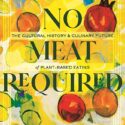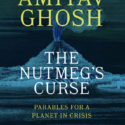Traveling with Sugar reframes the rising diabetes epidemic as part of a five-hundred-year-old global history of sweetness and power. Amid eerie injuries, changing bodies, amputated limbs, and untimely deaths, many people across the Caribbean and Central America simply call the affliction “sugar”—or, as some say in Belize, “traveling with sugar.” A decade in the making, this book unfolds as a series of crónicas—a word meaning both slow-moving story and slow-moving disease. It profiles the careful work of those “still fighting it” as they grapple with unequal material infrastructures and unsettling dilemmas. Facing a new incarnation of blood sugar, these individuals speak back to science and policy misrecognitions that have prematurely cast their lost limbs and deaths as normal. Their families’ arts of maintenance and repair illuminate ongoing struggles to survive and remake larger systems of food, land, technology, and medicine.
Traveling with Sugar: Chronicles of a Global Epidemic
Praise for Traveling with Sugar
“A remarkably original work, Traveling with Sugar overflows with critical thought, haunting prose, and trenchant details. Its gripping personal stories trace painfully intimate connections between planetary crisis, economic disparities, and human health.”
—Peter Redfield, author of Life in Crisis: The Ethical Journey of Doctors without Borders
“The reckoning of the living and dead, history and future, limb and loss through a mirror of the planet—its health, sickness, destruction—tells a powerful story . . . not only [of] human bodies but also plants, seeds, food systems, synthetic and herbal medicines, weather, and lands.”
— American Anthropologist
About the Author
 Amy Moran-Thomas is a cultural anthropologist, interested in the human and material entanglements that shape health in practice. She received her PhD in Anthropology from Princeton University in 2012, and held postdoctoral fellowships at Princeton and Brown University before coming to MIT. Her research bridges the anthropology of health and environment (chronic disease; ecological and agricultural change; metabolism and nutrition) with ethnographic studies of science and technology (medical devices; chemical infrastructures; technology and kinship). Professor Moran-Thomas has conducted fieldwork and archival research in Belize, Ghana, Brazil and the U.S, supported by the Wenner-Gren Foundation, Mellon-American Council of Learned Societies (ACLS), the Woodrow Wilson Society of Fellows, the Rachel Carson Center, the West African Research Association, and the American Philosophical Society. Her first book, Traveling with Sugar, blends ethnographic stories with anthropological and historical analyses to offer a humanistic account of the global diabetes epidemic.
Amy Moran-Thomas is a cultural anthropologist, interested in the human and material entanglements that shape health in practice. She received her PhD in Anthropology from Princeton University in 2012, and held postdoctoral fellowships at Princeton and Brown University before coming to MIT. Her research bridges the anthropology of health and environment (chronic disease; ecological and agricultural change; metabolism and nutrition) with ethnographic studies of science and technology (medical devices; chemical infrastructures; technology and kinship). Professor Moran-Thomas has conducted fieldwork and archival research in Belize, Ghana, Brazil and the U.S, supported by the Wenner-Gren Foundation, Mellon-American Council of Learned Societies (ACLS), the Woodrow Wilson Society of Fellows, the Rachel Carson Center, the West African Research Association, and the American Philosophical Society. Her first book, Traveling with Sugar, blends ethnographic stories with anthropological and historical analyses to offer a humanistic account of the global diabetes epidemic.
Additional Resources
A free PDF of the book Traveling with Sugar is available through MIT Libraries Open Access here. Special thanks to Dionne for her permission to share in her own words about “traveling with sugar.”
You can read further about the legacies of Garifuna farming in southern Belize here.
Learn more about food sovereignty work by Garifuna human rights activists in Central America here.
See the Diabetes Foot Care Group offer training to prevent amputations in collaboration with Belizean care providers here.
Support the work of the Belize Diabetes and Kidney Associations here.
Preview the World Health Organization’s new Global Diabetes Compact here.




